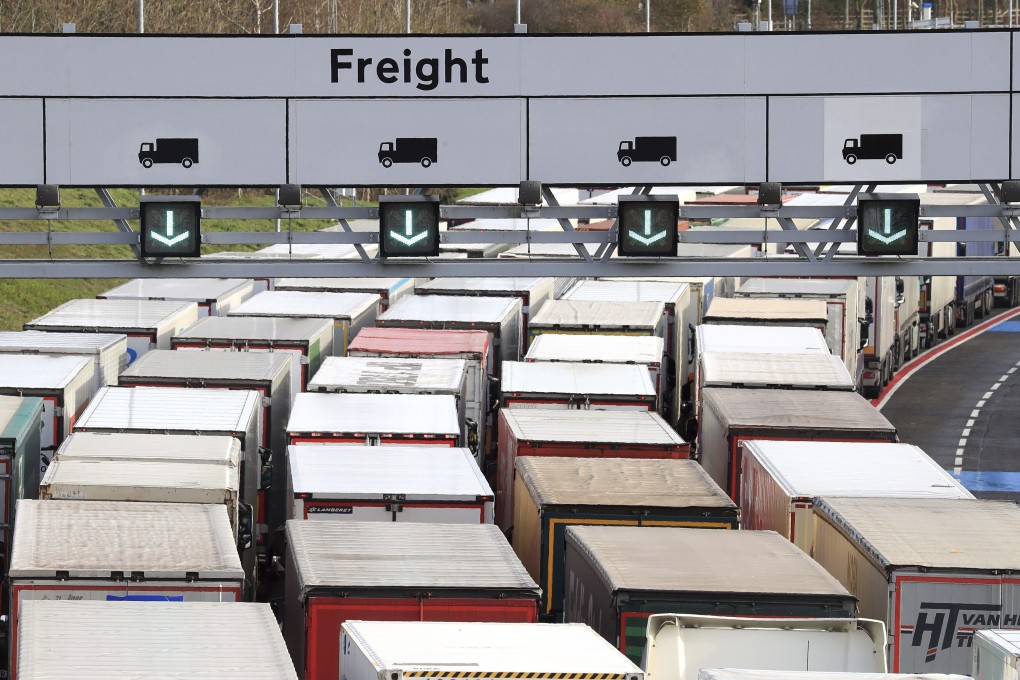Has Brexit met its portaloo? UK faces ‘lorry jam’ border pressures
- Customs checks could cause long delays for freight lorries at UK border
- UK and EU in final stages of negotiating post-Brexit trade arrangements

The southern English county of Kent, with its sweeping views over the English Channel to France, was once known as the garden of England because of its thriving horticulture trade.
But with just over four weeks until the UK leaves the EU’s single market and customs union, people living in the heavily-Brexit voting district can expect to see long lines of lorries and portable toilets for drivers held up by new border controls.
Peers in the House of Lords on Monday heard the government was still weighing how to organise portable toilets along the hard shoulder of the main motorways out of Kent for drivers stuck in expected queues. The concern is when the traffic is free flowing, lorry drivers making a quick dash could cause an accident. Instead, portaloos as they are commonly known, will probably only be installed in a times of severe lorry jams.
Whether EU and UK negotiators manage to reach an agreement on post-Brexit trade arrangements over the next few days, or if the UK exits the trade bloc with no deal, traffic management in Kent due to customs chaos is at the forefront of Brexit planners’ minds.
The UK government expects that in the worst scenario, 40 to 70 per cent of lorries will not have the correct papers with them when they arrive in Calais from Dover the beginning of January.
Although the UK government plans to introduce customs controls in stages over a period of six months to enable the new system to come into force, the EU plans to immediately begin customs checks.